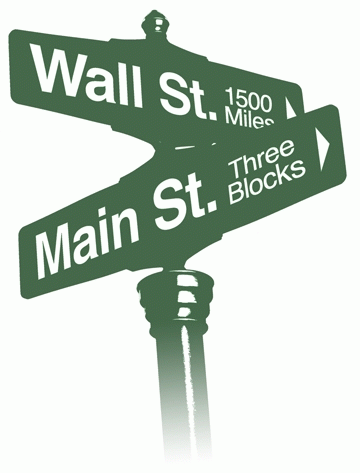Watching the broadcast media reporting on the catastrophe in Texas, I heard the team on Fox News wonder aloud what the evacuees would do and where to turn to find shelter and safety? Many left their homes with little more than the clothes on their backs. What resources could they draw on?
Commentator, Chris Stirewalt put it in perspective when he observed that most Americans can not, in times of crisis, lay their hands on more than $500. Other published estimates put that at $400.
Texas may be drowning in water, but the American people are drowning in debt. This is the legacy of decades of neo-liberal economic policy enforced by both political parties, in the Congress and the White House: Americans trapped in a web of debt spun over four decades by a parasitical finance "industry."
The "capitalism" endlessly extolled by talking heads on networks like Fox and in leading publications like The Wall Street Journal and the Economist is dead; having been steadily degraded into a global economics of trans- national monopolies, with wealth and income monopolized by the few.
It's simple, really. It takes capital to be a capitalist. Most Americans don't have any. They have debt. Families, students, small businesses, state and local governments, school districts and the taxpayers that support them are drowning in debt.
The proposed way out? It's just another step deeper into the web of debt. As in Pennsylvania and across the nation, the same old, same old: more debt and taxes.
The burden of debt will come quickly into focus as Congress is asked to appropriate the many billions that will be needed to fund the federal participation in the recovery from Hurricane Harvey. Deficit hawks are already insisting that whatever amount is appropriated must be offset by cuts elsewhere in the federal budget.
There is an alternative. To understand its utility, it is first necessary to understand how the money of the United States is created. Look at a dollar bill, or any bill. It says clearly at the top, "Federal Reserve Note." The Fed has a monopoly on the creation of our money. It works like this.
The Fed takes the "full faith and credit" of the United States (Nothing more - no gold, no silver), sells bonds and transfers the credit raised to the Treasury. The majority of the buyers are the global cabal of parasites in pinstripes and some foreign governments. The roughly two dozen banking and finance companies with a license to sell those bonds have made a fortune over the decades. The Treasury then pays off those bonds, at interest, with the money raised in income taxes. The interest is killing taxpayers and keeping Americans in debt.
Interest on mortgages, car loans, business loans, student loans, credit cards, municipal bond issues and built into the chain of production and supply for almost everything we purchase. One example. The new Bay Bridge in San Francisco cost about $6 billion. But there is another $6 billion in interest costs for California taxpayers to pay off.
The alternative is the one used by Lincoln in the Civil War, to by-pass the banksters and their high interest. The Treasury can issue the money directly, as "U.S. Treasury Notes," and avoid the interest paid to the banksters. Cut out the middleman.
Lincoln had the Treasury issue $450 million of "greenbacks," which went directly into the productive economy, buying goods and services. That $450 million in 1864 is equal to roughly $6.7 billion in today's dollars, a small fraction of the current $4 trillion federal budget and almost $20 trillion U.S. economy.
Trump has proposed a $1 trillion infrastructure package. It will come at interest. The Treasury could issue three times that as low, almost no cost interest (the same terms on which the Fed loaned an estimated $17 trillion to Wall Street) to underwater homeowners and businesses, students and cash strapped state and local governments and school districts, to pay off older, more costly debt and start rebuilding the entire national infrastructure. Millions can be put to work.
The Treasury can be repaid easily by an elimination of debt-service costs, an explosion of wealth-generating productivity, the growth of tax receipts at all levels of government and the future employment of well-educated young people.
The Treasury can bypass the Fed --which is nothing more than the administrative arm of Wall Street and the banksters -- and rescue the American people from their high interest racket.
(Note: You can view every article as one long page if you sign up as an Advocate Member, or higher).






